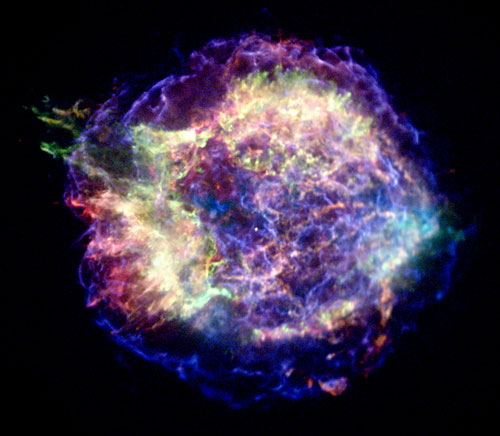
The largest explosion observed by astronomers took place
A huge cosmic explosion, which released gamma radiation, occurred after a star collapsed under its own weight. The explosion was observed directly by researchers in Namibia.
Gamma radiation was "captured" by the High Energy Stereoscopic System on August 29, 2019, after Swift and Fermi satellites detected an increase in radiation levels in the constellation Eridanus.
"Range explosions are flashes that can be seen in the sky, emitted at great distances from sources outside the galaxy." says Sylvia Zhu, researcher at the German research center Deutsches Elektronen Synchroton.
"These are the largest explosions that can take place in the Universe and are associated with the rapid transformation of a star into a black hole. Some of the gravitational energy released takes the form of a shock wave" says Zhu.
Such an explosion occurs once every 20 billion light-years away. But this happened just a billion light-years away.
In this context, the explosion has become a challenge for researchers. For three days, they were able to observe traces of the explosion, the discoveries being very important for understanding how radiation works.
Existing theories claim that X-rays and gamma rays are emitted by separate mechanisms. In principle, X-rays come from ultra-fast electrons that are deflected in the magnetic field of the explosion, in the same way that particle accelerators on Earth produce X-rays for scientific use.
It is unlikely that even very strong explosions can accelerate the electronics to produce gamma rays due to a "burning limit", which is determined by the balance of acceleration and cooling of particles in an accelerator.
The production of high-energy gamma rays through this mechanism would require electrons to exceed the combustion limit, but observations in this new explosion suggest something different, namely that X-rays and gamma rays have faded from each other.
Scientists will continue to study the phenomenon, hoping that next-generation instruments, such as the Cherenkov Telescope, will be able to regularly detect radiation from the very high energy band.
Category: News Tag: #explosion
